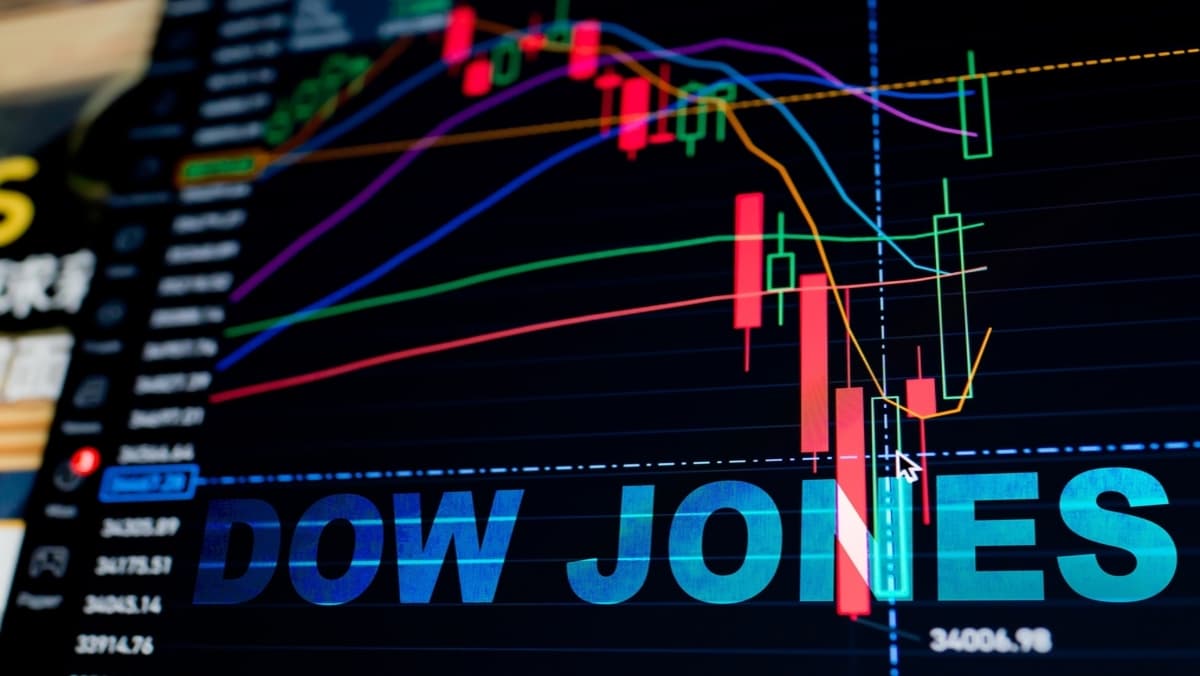
Thursday Dec 19 2024 06:13

4 min

Why did the stock market go down today, U.S. stocks experienced one of their worst days of the year after the Federal Reserve indicated on Wednesday.
The S&P 500 dropped 2.9%, nearing its largest loss of the year, as it moved further away from the all-time high reached a few weeks ago. The Dow Jones Industrial Average fell by 1,123 points, or 2.6%, while the Nasdaq Composite declined 3.6%.
On Wednesday, the Federal Reserve announced its third interest rate cut of the year, continuing the rapid shift that began in September to lower rates from a two-decade high in order to support the job market. While Wall Street typically favors lower interest rates, this cut was largely anticipated.
The key concern now is how much further the Fed will cut rates in the coming year. Expectations for multiple cuts in 2025 have significantly influenced the U.S. stock market, which has seen an all-time high of 57 times in 2024 alone.
Fed officials released projections indicating that the median expectation is for two additional cuts to the federal funds rate in 2025, a reduction from the four cuts projected just three months ago. Fed Chair Jerome Powell stated, "We are in a new phase of the process," noting that the central bank has already lowered rates by a full percentage point to a range of 4.25% to 4.50% since September.
When asked about the decision to slow down rate cuts, Powell pointed to the strong job market and rising inflation readings, as well as the uncertainties that may arise from the upcoming changes in the economy.
While lower interest rates can stimulate economic growth by making borrowing cheaper and boosting investment returns, they can also contribute to inflationary pressures. Powell mentioned that some Fed officials are considering the uncertainties associated with a new administration, particularly regarding President-elect Donald Trump’s policies, which could potentially fuel inflation and economic growth.
Reduced expectations for rate cuts in 2025 led to rising Treasury yields, putting pressure on the stock market. The yield on the 10-year Treasury increased to 4.51% from 4.40% late Tuesday, marking a significant shift in the bond market. Similarly, the two-year yield, which often reflects anticipated Fed actions, rose to 4.35% from 4.25%.
On Wall Street, stocks of companies most sensitive to higher interest rates experienced steep losses, particularly among smaller companies that rely on borrowing for growth. The Russell 2000 index of small-cap stocks fell 4.4%.
General Mills saw its shares drop 3.1%, despite exceeding profit expectations for the latest quarter. The company, known for Progresso soups and Cheerios, announced increased investments in its brands, prompting a reduction in its profit forecast for the fiscal year.
Nvidia, a key player in recent market rallies, declined 1.1%, continuing a downward trend. The stock has fallen over 13% from its record high set last month and has seen losses in nine of the last ten days as momentum wanes.
Conversely, Jabil surged 7.3% after reporting stronger-than-expected profit and revenue, raising its revenue forecast for the fiscal year.
Overall, the S&P 500 dropped 178.45 points to 5,872.16, the Dow Jones Industrial Average fell 1,123.03 to 42,326.87, and the Nasdaq Composite skidded 716.37 to 19,392.69.
In international markets, London’s FTSE 100 edged up less than 0.1% after inflation data indicated a rise to 2.6% in November, the highest in eight months. The Bank of England is set to announce its interest rate decision on Thursday.
In Japan, the Nikkei 225 slipped 0.7%, despite a significant 23.7% jump for Nissan Motor Corp. following news of possible collaboration with Honda Motor Co. Honda’s stock, however, lost 3%. Nissan, Honda, and Mitsubishi Motors recently agreed to share components for electric vehicles and collaborate on autonomous driving technologies to adapt to the rapidly changing auto industry.
When considering shares, indices, forex (foreign exchange) and commodities for trading and price predictions, remember that trading CFDs involves a significant degree of risk and could result in capital loss.
Past performance is not indicative of any future results. This information is provided for informative purposes only and should not be construed to be investment advice.
Asset List
View Full ListLatest
View all
Thursday, 26 December 2024

6 min

Wednesday, 25 December 2024

5 min

Wednesday, 25 December 2024

5 min


